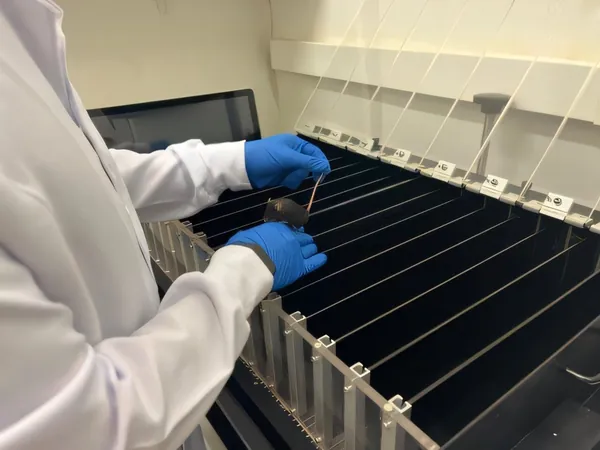
Oxford’s Nipah Virus Vaccine Makes History with EMA PRIME Status
2025-06-12
Author: Daniel
A Groundbreaking Achievement in Vaccine Development
In a remarkable advancement, the University of Oxford has become the first academic institution in the UK to achieve PRIME status from the European Medicines Agency (EMA) for its vaccine aimed at combating the deadly Nipah virus. This recognition marks a significant milestone in the global fight against one of the most concerning zoonotic diseases.
The Threat of the Nipah Virus
The Nipah virus is notorious for its high fatality rate, claiming up to 85% of those infected. The World Health Organization (WHO) has placed it at the top of the research priority list due to its pandemic potential. Alarmingly, there are currently no licensed treatments or vaccines available, which amplifies the urgency for effective medical intervention.
Why PRIME Status Matters
The EMA’s PRIority MEdicines (PRIME) scheme provides essential scientific and regulatory support for therapies targeting conditions with unmet medical needs. For the Oxford team, this prestigious designation signifies not just recognition from a leading regulatory body but also significantly boosts their efforts in vaccine development.
Understanding Nipah Virus Transmission
Carried mainly by fruit bats of the Pteropus genus, the Nipah virus can spread to humans through contaminated food sources like date palm sap or through direct contact with infected animals. The possibility of human-to-human transmission, particularly among healthcare workers, raises alarms about its potential for causing outbreaks.
Urgency for Global Preparedness
The Nipah virus has a documented history of outbreaks, initially identified in Malaysia and subsequently recurring in Bangladesh and India. These frequent occurrences underline the dire necessity for a vaccine to prevent what could escalate into a global health crisis.
Experts Weigh In on the Importance of the Vaccine
Dr. Daniel Jenkin, leading the clinical development of the vaccine at Oxford's Pandemic Sciences Institute, expressed his optimism: "Receiving PRIME status is rare for an academic institution and showcases our capabilities in vaccine development. We’re eager to leverage this designation to intensify our collaboration with the EMA."
Professor Brian Angus, Chief Investigator of the Nipah Vaccine Program, noted that this regulatory support is a massive boost in the quest for solutions to Nipah virus outbreaks, with hopes that successful trials will protect vulnerable populations and mitigate future pandemic risks.
Dr. Kent Kester, Executive Director of Vaccine Research at CEPI, underscored the urgency: "The Nipah virus poses a severe threat with high fatality rates and no approved vaccines, making its containment a clear priority for worldwide health security. The PRIME recognition will expedite the development process and ensure that timely protective measures are in place against this deadly virus."
A Collective Fight Against Future Pandemics
As the global health community rallies to develop this much-needed vaccine, the partnership between academic institutions like Oxford, regulatory bodies, and organizations like CEPI is critical in ensuring that we are equipped to tackle the challenges posed by emerging infectious diseases. The journey to a Nipah virus vaccine could be the key to preventing another catastrophic outbreak.




 Brasil (PT)
Brasil (PT)
 Canada (EN)
Canada (EN)
 Chile (ES)
Chile (ES)
 Česko (CS)
Česko (CS)
 대한민국 (KO)
대한민국 (KO)
 España (ES)
España (ES)
 France (FR)
France (FR)
 Hong Kong (EN)
Hong Kong (EN)
 Italia (IT)
Italia (IT)
 日本 (JA)
日本 (JA)
 Magyarország (HU)
Magyarország (HU)
 Norge (NO)
Norge (NO)
 Polska (PL)
Polska (PL)
 Schweiz (DE)
Schweiz (DE)
 Singapore (EN)
Singapore (EN)
 Sverige (SV)
Sverige (SV)
 Suomi (FI)
Suomi (FI)
 Türkiye (TR)
Türkiye (TR)
 الإمارات العربية المتحدة (AR)
الإمارات العربية المتحدة (AR)